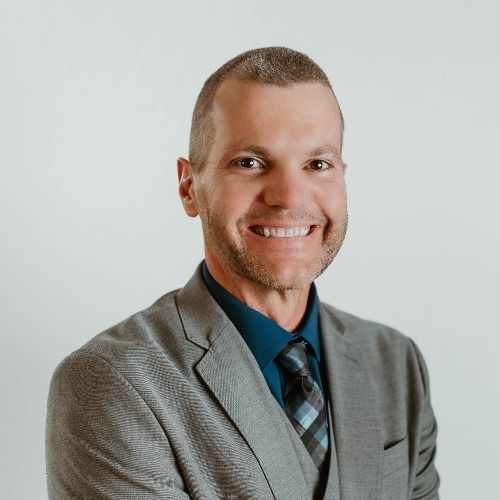Sunday School for Teachers: Solomon Asks for Wisdom
The essence of this discourse centers upon Solomon's profound request for wisdom, as articulated in 1 Kings 3:9, wherein he implores God for a discerning heart to govern his people effectively. This narrative serves as an illuminating reflection for educators, who, akin to Solomon, encounter a plethora of decisions and challenges within their classrooms. We are reminded that true wisdom is not merely a function of experience but is predicated upon humility and a recognition of our dependence upon divine guidance. The episode further elucidates how educators can embody this prayer in their daily practice, fostering an environment where grace and understanding flourish amidst the complexities of teaching. By embracing this approach, we not only enhance our pedagogical effectiveness but also cultivate a classroom atmosphere that reflects the compassionate application of truth.
The story of Solomon asking for wisdom encapsulates a fundamental principle relevant to educators: the significance of humility and the necessity of seeking divine guidance in the face of uncertainty. When Solomon was presented with the opportunity to request anything from God, his decision to ask for wisdom rather than material wealth or fame illustrates a profound understanding of leadership. This pivotal moment highlights the weight of responsibility that accompanies the role of a teacher—much like that of a king. Solomon's humble request exemplifies the essence of effective leadership, which begins with recognizing one's limitations and dependence on a higher wisdom. As educators traverse the daily challenges of the classroom, they often encounter situations that require discernment and compassion. The episode invites listeners to reflect on their own teaching practices and to consider how they, too, can cultivate a wise and discerning heart. Through practical strategies such as beginning the day with a prayer for wisdom, pausing to listen before reacting, and seeking counsel from fellow educators, teachers can embody the spirit of Solomon's request, ultimately fostering a nurturing and impactful learning environment for their students.
Takeaways:
- Solomon's humble request for wisdom serves as a profound reminder for educators to seek divine guidance in their teaching practices.
- In times of uncertainty, admitting our need for help can lead to greater wisdom and effective leadership in the classroom.
- The essence of true wisdom lies not only in knowledge but also in the compassionate application of that knowledge in teaching.
- By starting each day with a prayer for wisdom, teachers can cultivate a more thoughtful and reflective approach to their interactions with students.
Links referenced in this episode:
Companies mentioned in this episode:
- Be a Funky Teacher
Transcript
Yeah, he's Mr. Funky He's Mr. Funky Teacher Mr. Funky Teacher inspires greatness, makes you feel good like your favorite playlist Keeping that fresh and funky.
Speaker A:Yes, he does.
Speaker A:He got some funky cool ideas to share for all you teachers.
Speaker A:He can empower others, students and teachers.
Speaker A:It's all about hard work and creativity.
Speaker A:He brings out the kindness in everyone.
Speaker A:He's got the passion to teach.
Speaker A:You hear it when he speaks.
Speaker A:He knows how to build strong relationships.
Speaker A:If you're seeking the best bunkiest, he is it.
Speaker A:He will empower you to improve.
Speaker A:He'll be helping others and loving it too.
Speaker A:He's Mr. Funky Teacher yeah, he's Mr. Funky Teacher yeahS, yeah, yeah.
Speaker B:This is Mr. Funky Teacher with Be a Funky Teacher dot com.
Speaker B:I'm coming to you with another Be a Funky Teacher podcast.
Speaker B:Before we dive into today's episode, I want to welcome you back to Sunday School for Teachers.
Speaker B:This is our little corner each week where Christian educators from public schools to private can slow down, catch our breath, and reconnect with the one who called us to this work in the first place.
Speaker B:I have a deep respect for every teacher out there, no matter what you believe.
Speaker B:But these Sunday episodes are my time to speak openly about how my faith in Jesus shapes the way that I teach, how it keeps me grounded, challenges me to grow, and reminds me that teaching isn't just a job, it's ministry in motion.
Speaker B:Now, I'm not a preacher.
Speaker B:I'm a teacher who's as flawed and messy as they come, just trying to let God work through me.
Speaker B:I believe faith isn't something you just talk about.
Speaker B:It's something you live out daily right there in the classroom.
Speaker B:So before we get into it, let's talk about the three things that I'm thankful for today.
Speaker B:First thing, I'm thankful for my faith in Jesus, who gives me wisdom when I don't have the answers.
Speaker B:Second thing that I'm thankful for, My students.
Speaker B:My students remind me that growth is messy, beautiful, and worth it.
Speaker B:And the third thing that I'm thankful for is quiet moments of reflection where God helps me see things much more clearly.
Speaker B:All right, let's get into today's episode.
Speaker B:Today's episode is called Solomon Asked for Wisdom.
Speaker B:Our verse Today comes from First Kings, chapter 3, verse 9.
Speaker B:It says, Give your servant a discerning heart to govern your people and to distinguish between right and wrong.
Speaker B:So let's talk about this.
Speaker B:After his father David passes away, Solomon becomes king.
Speaker B:A man, a young man suddenly placed in charge of an he finds himself Placed in charge of an entire nation, y'.
Speaker B:All.
Speaker B:And the.
Speaker B:The weight of this leadership sat heavy on his shoulders.
Speaker B:He knew his people would look to him for things like.
Speaker B:For justice, guidance and wisdom.
Speaker B:Now, one night, the Lord appeared to Solomon in a dream and said, ask for whatever you want me to give you.
Speaker B:Just imagine that, y'.
Speaker B:All.
Speaker B:God himself offering you what?
Speaker B:One request.
Speaker B:Most of us would think of something big, maybe success, wealth, safety or strength, right?
Speaker B:But Solomon, Solomon did not ask for any of these things.
Speaker B:Instead, he.
Speaker B:He said, lord, you have made me king in place of my father David, but I am only a little child and do not know how to carry out my duties.
Speaker B:Give your servant a discerning heart to govern your people and to distinguish between right and wrong.
Speaker B:God was pleased with that answer.
Speaker B:Because Solomon, he didn't ask for riches.
Speaker B:He didn't ask for fame or power.
Speaker B:God.
Speaker B:Because of this, God promised to give him wisdom beyond anyone before or after, and even added wealth and honor as blessings.
Speaker B:Later, Solomon's wisdom became known throughout the world, y', all, because, see, people traveled from faraway lands just to hear his insight.
Speaker B:But at.
Speaker B:At the heart of this story here, there's something simple.
Speaker B:He asked God for help.
Speaker B:He didn't pretend to have it all figured out.
Speaker B:He started with humility and dependence on God, y'.
Speaker B:All.
Speaker B:And so let's just think about this here.
Speaker B:Let's.
Speaker B:Let's do a reflection here for educators and what this means here.
Speaker B:When I read Solomon's story, I think of every teacher who.
Speaker B:Who walks into a classroom each morning carrying lesson plans to do lists.
Speaker B:And y', all, sometimes a heavy heart, even there.
Speaker B:There are days when you might feel exactly like Solomon, Lord, I don't know what to do.
Speaker B:You're faced with tough decisions.
Speaker B:How to reach that one student who shuts down, or how to handle a conflict.
Speaker B:Maybe how to teach with energy when you're running on empty.
Speaker B:The truth is wisdom.
Speaker B:It doesn't come from experience alone.
Speaker B:It comes from humility, from admitting we need God's guidance in our daily teaching.
Speaker B:You don't have to know it all, my friends.
Speaker B:You don't have to know it all.
Speaker B:In fact, trying to know it all will wear you down.
Speaker B:What God asks is that you come to him and say, lord, give me a discerning heart.
Speaker B:Wisdom isn't just knowing what's right.
Speaker B:It's knowing how to apply truth with compassion.
Speaker B:That truth with compassion.
Speaker B:Wow.
Speaker B:See, it's that still, quiet voice that says pause before you speak.
Speaker B:It's the nudge to check on a student instead of sending them out.
Speaker B:It's realizing that sometimes love, love is the best lesson plan.
Speaker B:And when you teach from that space that God centered wisdom, your classroom changes, y'.
Speaker B:All.
Speaker B:Students feel seen.
Speaker B:Grace grows and peace starts to replace pressure.
Speaker B:So let's talk about some some practical classroom connections.
Speaker B:What, what does this mean?
Speaker B:Here are a few ways to live out Solomon's Prayer this week.
Speaker B:Start your day with a wisdom prayer.
Speaker B:Before students walk in, simply say, lord, give me your heart and your eyes today.
Speaker B:Think about how powerful that could be.
Speaker B:Also pause before reacting.
Speaker B:In those tense moments, wisdom often looks like slowing down long enough to listen.
Speaker B:Seek counsel, y'.
Speaker B:All, Just like Solomon learned from his father David.
Speaker B:Don't be afraid to ask another teacher or mentor for insights.
Speaker B:God often sends wisdom through community and reflect each day, boy.
Speaker B:And that's something I feel strongly about, y'.
Speaker B:All.
Speaker B:Reflect each day.
Speaker B:Ask yourself, where did I see God's wisdom at work today?
Speaker B:Where did I need it more of?
Speaker B:Just think when we reflect and we think about where was God's wisdom with us?
Speaker B:Where could we have incorporated it more?
Speaker B:That's going to make us a better teacher, y', all, as we do.
Speaker B:As I get ready to close here, a closing reflection.
Speaker B:I just want to say that sometimes the wisest thing a teacher can do is.
Speaker B:Isn't to have all the answers, y'.
Speaker B:All.
Speaker B:It's not we don't have to have all the answers.
Speaker B:It's to admit that we don't.
Speaker B:Wisdom begins where pride ends.
Speaker B:It's born in those quiet, honest prayers that says, God, I need you in my classroom.
Speaker B:Solomon's story reminds us that God delights in those prayers he loves when his children, especially his teachers, come seeking his heart over their own.
Speaker B:So I'd like to close here in a prayer.
Speaker B:Lord, thank you for the story of Solomon.
Speaker B:When I feel uncertain or overwhelmed, help me to stop striving and start asking.
Speaker B:Give me a discerning heart to lead my students with wisdom, patience and grace.
Speaker B:Fill me with understanding that comes from you, not from the world.
Speaker B:And remind me daily that your spirit can do more through me than I could ever do on my own.
Speaker B:Amen.
Speaker B:All right, funky teachers out there, remember to inspire greatness in young people.
Speaker B:And don't forget to be a funky teacher.
Speaker B:Bye now.
Speaker A:He's Mr. Funky Teacher, yeah he's Mr. Funky Teacher yeah, yeah, yeah.

